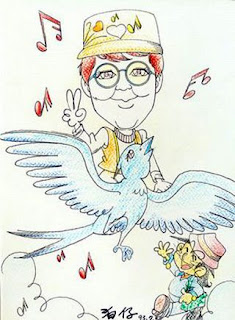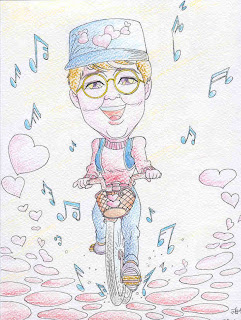Jo Freeman
On July 15, 1960, my mother took me to the L.A. Coloseum to hear John F. Kennedy accept the Democratic Party's nomination for President. She had been an ardent support of Adlai Stevenson and was disappointed that he didn't get a third bite at the apple, but she knew that this was an historic occasion. She wanted her 14-year-old daughter to see it, in person, and not on a TV screen.
I thought about that day many times as I sat in Denver's Invesco Center waiting for Barack Obama to accept the Democratic Party's nomination. This too was an historic occasion, and I wanted to be there.
Like their counterparts in 1960, Party planners chose the largest arena available for their candidate to accept the Democratic Party's nomination for President so ordinary members of the public could see history being made in person.
Like his predecessor, Barack Obama spoke eloquently, and told the world that it was a time for change. He didn't coin a new phrase as Kennedy did, but he did inspire new hope.
It was in his acceptance speech that Kennedy gave his Presidency its label -- the New Frontier. He said “We stand today on the edge of a new frontier — the frontier of the 1960s -- a frontier of unknown opportunities and perils -- a frontier of unfilled hopes and unfilled threats.”
JFK was a better prophet than anyone knew at the time, but the New Frontier was not where he thought it was.
The new frontier of the 1960s was in the movements for civil rights and civil liberties that were just beginning. It was the youth of the 1960s who were providing the "new invention, innovation and imagination" that Kennedy called for.
They did it with their bodies.
On February 1, 1960 four black college students occupied the white-only seats of a five-and-dime lunch counter in Greensboro, North Carolina. This was the start of the sit-ins which would shape so much of the sixties civil rights movement. Although the movement had started earlier, the idea of sitting in caught the imagination of American youth and inspired sit-ins all over the country.
One of those youth was John Lewis of Troy, Alabama. The sit-ins led to the formation of the Student Non-Violent Co-ordinating Committee (SNCC). On August 28, 1963, Lewis, as the new chairman of SNCC, was one of the main speakers at the March on Washington, where Dr. Martin Luther King, Jr. made his famous "I had a dream" speech.
Exactly forty-five years later, I watched Cong. Lewis of Georgia tell the assembled multitudes in the Invesco Center (and the world watching on TV) about that day, while on a large screen above the Center, photos flashed of Dr. King and other scenes from the civil rights movement. His talk was followed by that of two of King's children.
The 1963 March on Washington was controversial at the time. President Kennedy had tried to keep it from happening.
Now it was being celebrated as the Democratic Party nominated a black man for President -- one whose very conception (black father, white mother) was a felony in many states when JFK was President.
The dream of which Dr. King spoke is not yet fulfilled, Cong. Lewis told the Democrats, but it "still burns in the hearts of every American." He called the nomination of Barack Obama "a major down payment on the fulfillment of that dream."
However, there is another dream that was part of the New Frontier of the 1960s that is threatened with forclosure. That is the dream of every American to speak, write and think freely, and to conduct their lives without government surveilliance.
The Cold War put a major crimp on civil liberties, as government agencies were allowed to persecute ordinary Americans under the banner of ferreting out subversives.
In May of 1960 hundreds of Bay Area college students protested outside hearings held by the House Un-American Activities Committee, meeting in San Francisc's City Hall. They were washed down the steps with firehouses and 67 were arrested, but HUAC never came back to the Bay Area.
This event marked the beginning of the movement to regain the civil liberties lost in the Cold War security fever. It took 40 years of struggle to restore civil liberties and rein in government intelligence gatherers.
After September 11, 2001, in the name of security, government once again is nibbling away at American civil liberties. Only now they do it in the name of uncovering terrorists.
The Democrats ignored that parallel in the speeches and the imagery of the last night of the convention.
I hope they won't ignore it when they take back the federal government.
On July 15, 1960, my mother took me to the L.A. Coloseum to hear John F. Kennedy accept the Democratic Party's nomination for President. She had been an ardent support of Adlai Stevenson and was disappointed that he didn't get a third bite at the apple, but she knew that this was an historic occasion. She wanted her 14-year-old daughter to see it, in person, and not on a TV screen.
I thought about that day many times as I sat in Denver's Invesco Center waiting for Barack Obama to accept the Democratic Party's nomination. This too was an historic occasion, and I wanted to be there.
Like their counterparts in 1960, Party planners chose the largest arena available for their candidate to accept the Democratic Party's nomination for President so ordinary members of the public could see history being made in person.
Like his predecessor, Barack Obama spoke eloquently, and told the world that it was a time for change. He didn't coin a new phrase as Kennedy did, but he did inspire new hope.
It was in his acceptance speech that Kennedy gave his Presidency its label -- the New Frontier. He said “We stand today on the edge of a new frontier — the frontier of the 1960s -- a frontier of unknown opportunities and perils -- a frontier of unfilled hopes and unfilled threats.”
JFK was a better prophet than anyone knew at the time, but the New Frontier was not where he thought it was.
The new frontier of the 1960s was in the movements for civil rights and civil liberties that were just beginning. It was the youth of the 1960s who were providing the "new invention, innovation and imagination" that Kennedy called for.
They did it with their bodies.
On February 1, 1960 four black college students occupied the white-only seats of a five-and-dime lunch counter in Greensboro, North Carolina. This was the start of the sit-ins which would shape so much of the sixties civil rights movement. Although the movement had started earlier, the idea of sitting in caught the imagination of American youth and inspired sit-ins all over the country.
One of those youth was John Lewis of Troy, Alabama. The sit-ins led to the formation of the Student Non-Violent Co-ordinating Committee (SNCC). On August 28, 1963, Lewis, as the new chairman of SNCC, was one of the main speakers at the March on Washington, where Dr. Martin Luther King, Jr. made his famous "I had a dream" speech.
Exactly forty-five years later, I watched Cong. Lewis of Georgia tell the assembled multitudes in the Invesco Center (and the world watching on TV) about that day, while on a large screen above the Center, photos flashed of Dr. King and other scenes from the civil rights movement. His talk was followed by that of two of King's children.
The 1963 March on Washington was controversial at the time. President Kennedy had tried to keep it from happening.
Now it was being celebrated as the Democratic Party nominated a black man for President -- one whose very conception (black father, white mother) was a felony in many states when JFK was President.
The dream of which Dr. King spoke is not yet fulfilled, Cong. Lewis told the Democrats, but it "still burns in the hearts of every American." He called the nomination of Barack Obama "a major down payment on the fulfillment of that dream."
However, there is another dream that was part of the New Frontier of the 1960s that is threatened with forclosure. That is the dream of every American to speak, write and think freely, and to conduct their lives without government surveilliance.
The Cold War put a major crimp on civil liberties, as government agencies were allowed to persecute ordinary Americans under the banner of ferreting out subversives.
In May of 1960 hundreds of Bay Area college students protested outside hearings held by the House Un-American Activities Committee, meeting in San Francisc's City Hall. They were washed down the steps with firehouses and 67 were arrested, but HUAC never came back to the Bay Area.
This event marked the beginning of the movement to regain the civil liberties lost in the Cold War security fever. It took 40 years of struggle to restore civil liberties and rein in government intelligence gatherers.
After September 11, 2001, in the name of security, government once again is nibbling away at American civil liberties. Only now they do it in the name of uncovering terrorists.
The Democrats ignored that parallel in the speeches and the imagery of the last night of the convention.
I hope they won't ignore it when they take back the federal government.








沒有留言:
張貼留言